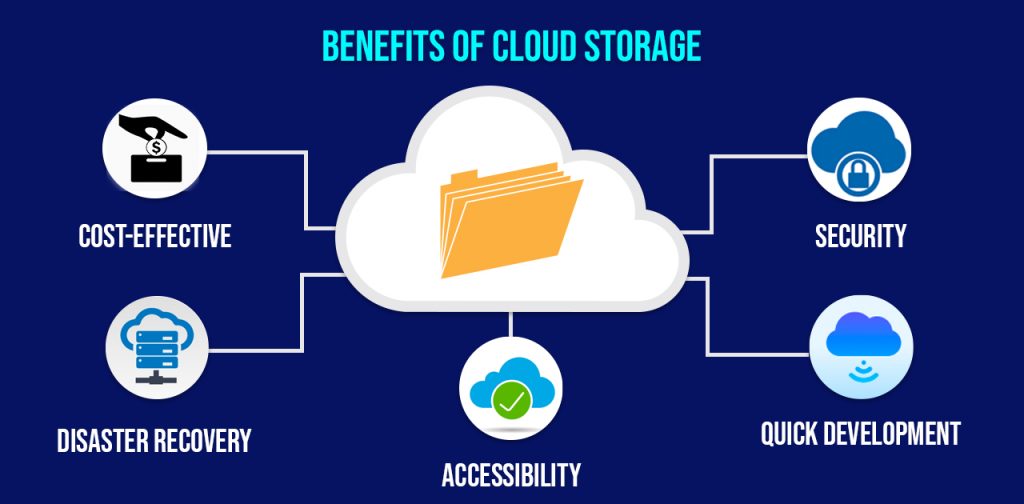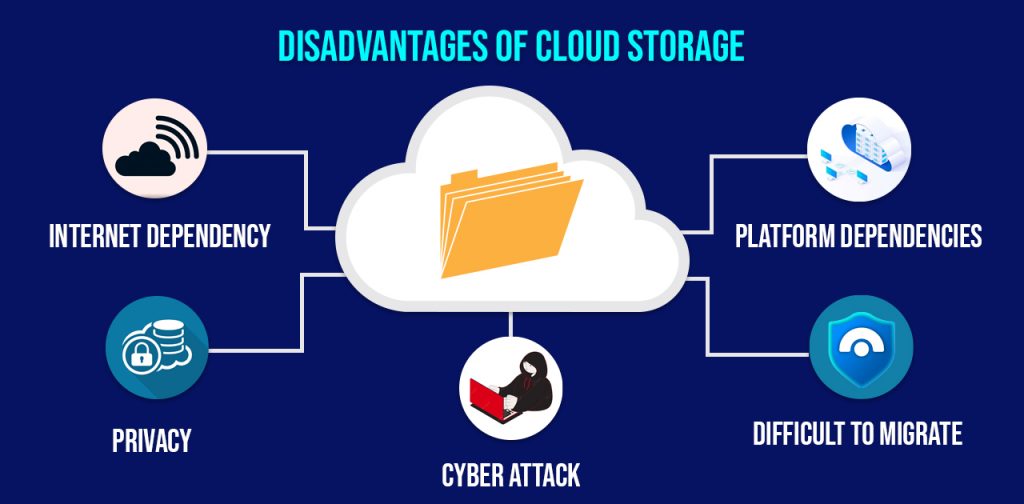A third-party service provider manages data on remote servers via the internet in a cloud storage service. The provider is responsible for maintaining the security, availability, and performance of the data, and users can access and adjust their storage as needed from anywhere with an internet connection. People commonly use cloud storage for backup, file storage, and disaster recovery.
Cloud storage advantages and disadvantages are listed below.
Advantages of Cloud Storage

Cost
Investing in physical storage can incur high costs. By eliminating the need for hardware, cloud storage offers a more cost-effective option per gigabyte compared to external drives
Disaster Recovery (DR)
If your physical hard drive experiences failure or any other hardware issues, your files are still retrievable through the cloud. It serves as a backup solution for your data stored on physical storage devices
Accessibility
Cloud storage enables you to access your data remotely from anywhere, whether you are in Manchester or Madrid. This feature proves especially useful for people who travel frequently for work or have team members located in different time zones. Cloud storage facilitates the collaborative process when teams are geographically dispersed.
Security
Professional cloud storage providers often provide much higher levels of data protection than small enterprises could achieve on their own. Companies that provide cloud storage offer password-protected data storage. After that, encryption technology is used to send data over the internet.
Quick deployment
With cloud technology, you can expect your entire infrastructure to be fully operational within a short time frame, the exact duration may vary based on the technology your business employs.
Disadvantages Of Cloud Storage

Internet Dependency
The use of cloud storage requires an internet connection. You can experience difficulties gaining access to your storage if your network is slow. You won’t be able to view your files if you are somewhere without internet connectivity.
Privacy
When you use a cloud service, your data no longer remains stored in your physical storage. So who is accountable for ensuring data security? It’s a murky subject that’s currently being clarified.
Cyber Attacks
Another drawback of working with cloud computing companies is a security vulnerability. A third-party cloud computing service provider can exchange any private information about the company. Hackers could use these details.
Platform dependencies
Cloud storage’s tacit dependence, commonly referred to as “provider lock-in,” is another disadvantage. It can frequently be challenging to transition from one cloud platform to another because of innate differences between provider platforms.
Difficult to migrate
Moving data to another cloud storage provider can be challenging after signing up and using one particular cloud storage company. This issue is referred to as “vendor lock-in.” For medium-to-large enterprises that keep vast volumes of data with one cloud provider, vendor lock-in is a particular issue.
You may also like our post Top 5 best ai chatbots for kids.


Admin Admin
asd